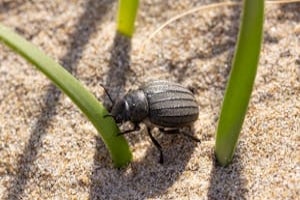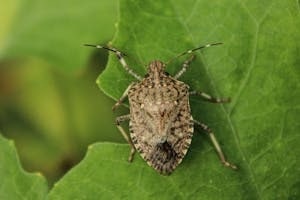 Seasonal bugs are a guarantee in Massachusetts. They are not here just to terrorize your home; rather, they play essential roles in the environment, such as pollination or providing food to other animals. However, some of the most common bugs in Massachusetts are the types that love to infiltrate human homes and cause problems. If you have been fighting a losing battle against insect invaders or want to get ahead of any potential issues, it is essential to understand how the seasons affect bug behavior.
Seasonal bugs are a guarantee in Massachusetts. They are not here just to terrorize your home; rather, they play essential roles in the environment, such as pollination or providing food to other animals. However, some of the most common bugs in Massachusetts are the types that love to infiltrate human homes and cause problems. If you have been fighting a losing battle against insect invaders or want to get ahead of any potential issues, it is essential to understand how the seasons affect bug behavior.
Seasonal changes not only determine which bugs are out and about but also how they behave. Being able to predict how things will shift gives homeowners enough time to create prevention strategies or stop potential invasions while they are still in their infancy. Here is what you need to know.
What to Know About Seasonal Bugs
There are many common bugs in Massachusetts, but the main ones that cause problems for homeowners are ants, spiders, wasps, roaches, and mosquitoes. Each of these insects is influenced by shifting seasonal conditions.
Springtime emergence
The vast majority of insects will spend spring bolstering their numbers. Populations surge during this time as the warmer weather finally reveals food sources, ample water, and suitable temperatures for molting and reproduction. It is common to see an unusually high number of bugs in and around the home during this time.
Springtime is a little early for mosquitoes, but spiders will begin to spin new webs that can support their growing families. Ants are dedicated to establishing new trails, while wasps build hives or nests (depending on the type) that will house them for the rest of the year.
Summertime activity
 Summer is the most active season for common bugs in Massachusetts. As temperatures peak, insect patterns change again: they may hide in cool or moist spots during the day. This change may mean that homeowners who previously had a handle on their bug problems during the spring (when insects were out exploring for their next long-term establishment) may encounter new issues. Different hiding spots for bugs can lead to infiltration in areas you did not expect.
Summer is the most active season for common bugs in Massachusetts. As temperatures peak, insect patterns change again: they may hide in cool or moist spots during the day. This change may mean that homeowners who previously had a handle on their bug problems during the spring (when insects were out exploring for their next long-term establishment) may encounter new issues. Different hiding spots for bugs can lead to infiltration in areas you did not expect.
Additionally, summer marks the emergence of some of the most notorious pests, including ticks and mosquitoes. Due to the booming population of insects established during the reproductive period in the spring, homes may experience a surge of insects trying to get in for food. This is also the time of year when wasps are actively patrolling (now that their hives are built), making them more of a nuisance than usual.
Autumn establishment
Autumn welcomes a gradual decline in insect activity, but the species that remain can become especially troublesome. As they seek long-term security over the coming cooler months, many bugs push inward toward a home’s interior to find safety and food. Because the outdoors no longer provides a safe hideaway among a tree’s leaves or lush grass, the next best option is inside human homes.
Winter infiltration
Wintertime can bring lulls in common bug activity, but they are still present. If homeowners do not secure their homes earlier in the year, there is no other place for bugs to go but inside during the winter. An unprotected home is an inviting option.
How to Stop Pests
 Each insect behaves in its own distinct ways, but there are a few strategies that you can leverage to keep your home bug-free, no matter the species:
Each insect behaves in its own distinct ways, but there are a few strategies that you can leverage to keep your home bug-free, no matter the species:
- Keep the sides of the house aired out, especially in spring and summer when grass and weeds grow tall. Keep everything trimmed away from the side of the house. This stops bugs from taking a leafy bridge straight from the ground to the house.
- Close gaps. Cracks or gaps around piping, wiring, or other home installations are the perfect entry points for bugs. Check in the spring and then again in the fall to see what holes you can close. However, make sure not to seal the weep holes on windows or in brick walls, as these are an important drainage feature that prevents mold and other kinds of water damage.
- Inhibit establishment. Stopping bugs from getting a foothold in your lawn in the first place decreases the risk they will enter your home later. Use plants such as chrysanthemum or lavender, which bugs dislike, to repel pests naturally.
- Get rid of standing water. Mosquitoes need only a few drops of water to reproduce. Do not give them the opportunity to multiply.
Get Ahead of Common Bugs in Your Massachusetts Home
Bugs can be a problem at any time of year, but a smart pest control strategy can keep your home secure regardless of the season. Contact Spartan Animal & Pest Control if you’re starting to see bug problems or if you want to prevent issues before they arise.



